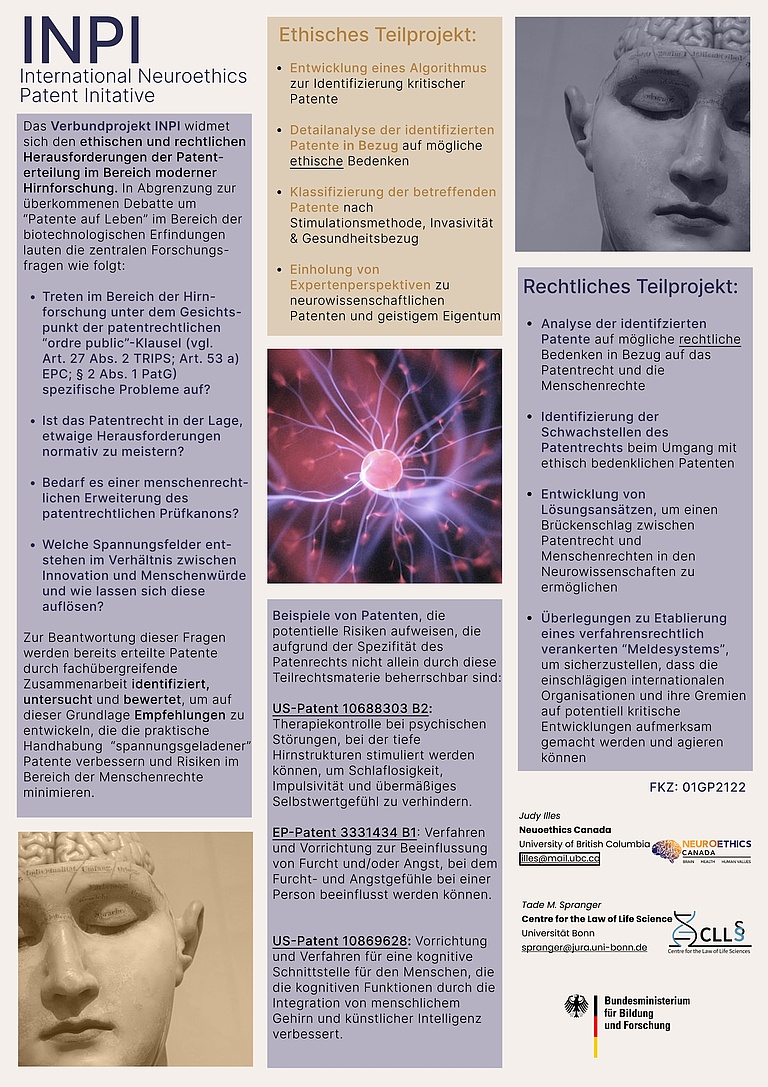BMBF-Project: INPI
International Neuroethics Patent Initiative
Since April 2021, Prof. Spranger has been coordinating the third-party funded project "INPI - International Neuroethics Patent Initiative", which runs from 1 April 2021 to 31 March 2024 and is being carried out together with the Canadian neuroethicist Prof. Dr Judy Illes. The project is funded by the BMBF under grant number 01GP2122 and deals with legal issues relating to patents in the field of neuroscience.
In recent years, neuroethics and neurolaw have established themselves as disciplines with their own raison d'être. Despite exponentially increasing relevance, the impact and challenges of patent law have so far gone almost unnoticed. Patents granted in the field of neuroscience cover various aspects of diagnostics, medical devices, data processing and computer modelling as well as networks and systems related to the central nervous system.
Historically, patent protection has protected the intellectual property of creative inventors in the field of neuroscience and provided financial incentives for innovation. Today, however, the broad scope of neuroscience patents can lead not only to obstacles to research, but also to potentially massive violations of personal rights, human dignity and the protection of health data. In addition to these risks, there are also ideas about "mind reading" and "the transparent brain" that arise from the new capabilities of neuroscience.
These risks are compounded by notions of "mind reading" and "the transparent brain" arising from the new capabilities of both invasive and non-invasive brain-computer interfaces, such as signal recording and regional tissue stimulation in healthy individuals and patients with neurological and psychiatric disorders.
Our aim is to comprehensively review patents already granted in the field of neuroscience - be it in relation to drugs, software or technology - to analyse them for their legal viability and to highlight expert perspectives on their potential benefits and risks for individuals, patients and society.
The outcome of this work will be both practical guidance for the future of patents in neuroscience and an evidence-based recommendation for limits that may be required.